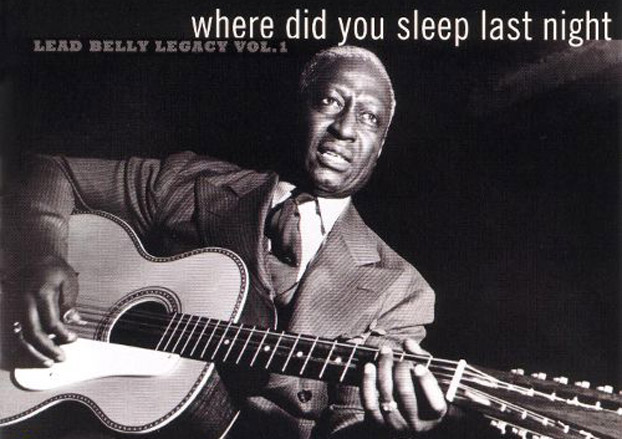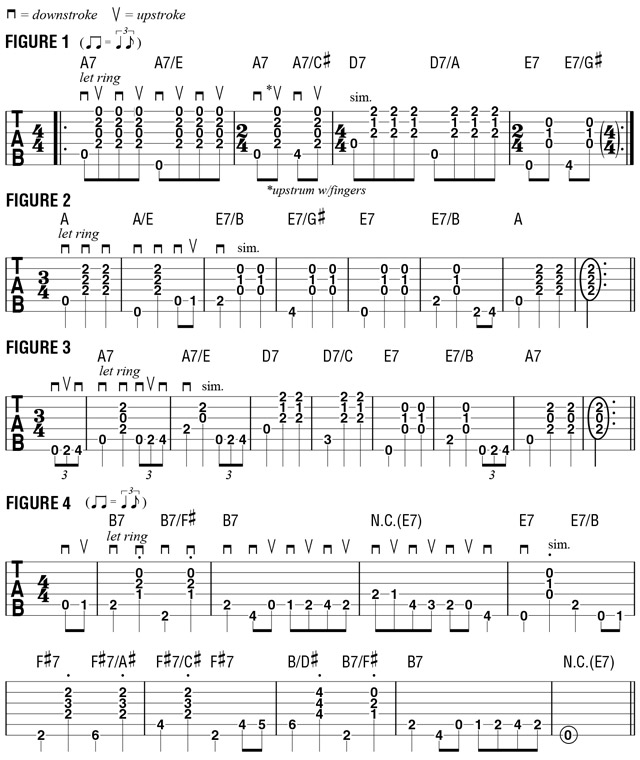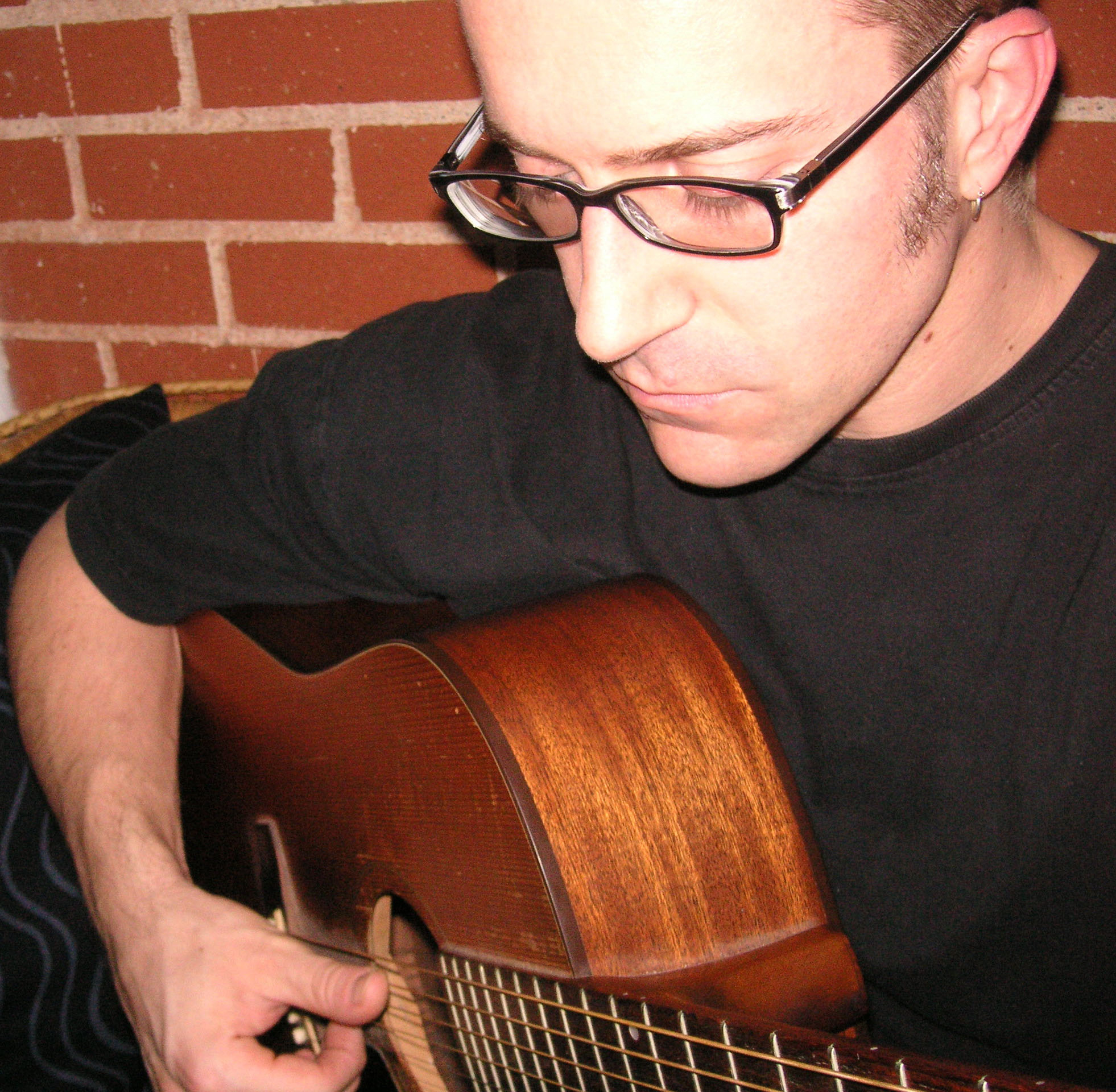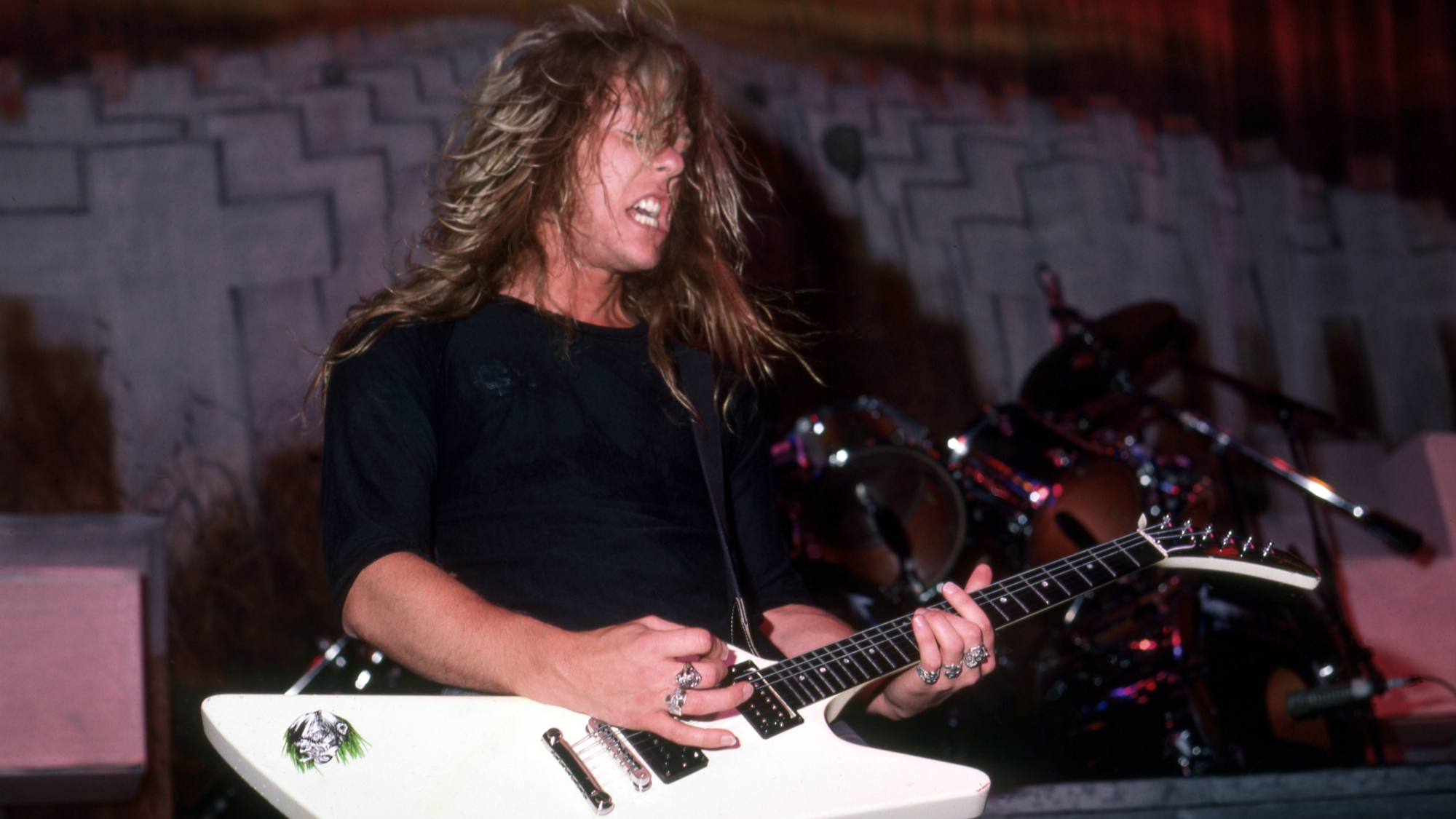12-String King:Lead Belly’s Big-Bottom Blues

In 1925, folk/blues phenom Huddie William Ledbetter, a.k.a. “Lead Belly,” won his way out of jail (he’d been convicted of murder) by way of a “pardon”—swayed by Lead Belly’s undeniable musical talents—from Texas Governor Pat Neff.
But it wasn’t long before Ledbetter found himself incarcerated again, this time (1930) for attempted murder.
A second lucky strike led to famed musicologists John and Alan Lomax “rediscovering” Lead Belly; his subsequent release from prison resulted in the 12-string guitarist’s first recordings (1934–43), intended for “archival/historical” purposes, now available as The Library of Congress Recordings (Elektra).
By the Forties, awareness of Ledbetter had spread, his political lyrics (e.g., “Bourgeois Blues”) inspiring famed folk revivalists Pete Seeger and Woody Guthrie. (Seeger later published a book/recording on 12-string guitar, in honor of Lead Belly.) Performances with Seeger, Guthrie, Sonny Terry and Brownie McGee helped broaden the bluesman’s appeal, leading to radio broadcasts (Lead Belly had his own WNYC show) and recordings with RCA Victor, Smithsonian/Folkways and Capitol Records.
Following his passing in 1949 (from Lou Gehrig’s disease), Lead Belly’s legend grew exponentially; his songs have since been covered by Nirvana, Bob Dylan, Beach Boys, Elvis Presley, ABBA, Frank Sinatra, Johnny Cash, Tom Waits and the White Stripes. Let’s honor Lead Belly with a lesson, focusing largely on the man’s inventive bass lines, which he picks (using a thumbpick) on his Stella 12-string.
FIGURE 1 is inspired by Lead Belly’s take on the folk song “Grey Goose,” his bass lines mimicking the tune’s ever-present “Lord, Lord, Lord” melody. As you hold each chord shape, use your fret-hand pinkie for all fourth-fret bass notes (A7/C# and E7/G#). Use your pick or fingers to strum the “chord stabs” appearing throughout this lesson. FIGURE 2 shows similar chords, in the style of Lead Belly’s signature song, “Goodnight, Irene,” here spiced up with step-wise bass lines, scalar/chromatic walk-ups to chord tones of E7 (bars 2 and 3) and A (bars 6 and 7).
Virtually all of Lead Belly’s songs are detuned to a “slack” version of standard tuning, with all 12 strings tuned down proportionally, by as much as a major third (the distance of four frets, down to C), and occasionally lower than that. (Before 1921, truss rods were rare in guitars, and to relieve the considerable tension on 12-string necks, guitarists typically tuned down to alleviate excessive neck bowing and keep their instrument playable.)
To wit, a song like “Where Did You Sleep Last Night?” (famously covered by Nirvana on MTV Unplugged), though depicted in the key of A in FIGURE 3, actually sounds much lower—and darkly powerful (key of F)—on most versions Lead Belly recorded in the Forties. It also features tricky triplet bass lines (three equally spaced notes, here in beat four of bars 1, 2 and 6), climbing to forthcoming chords.
We’ll close this lesson with FIGURE 4, a virtuosic display of low-register activity, similar to what Lead Belly unloads in various renditions of “Midnight Special,” a song sung from the viewpoint of a prisoner yearning to hitch a ride to freedom on a Houston passenger train of the same name.

Get The Pick Newsletter
All the latest guitar news, interviews, lessons, reviews, deals and more, direct to your inbox!
A singer-songwriter/multi-instrumentalist/film composer, Musician's Institute instructor, and author of 50+ transcription/instructional books, Dale Turner is also Guitar World's "Hole Notes"/"Acoustic Nation" columnist, and the former West Coast Editor of Guitar One magazine. Some of Dale’s old, weird, rare, and/or exotic instruments are featured in his score for WEEDS, the first animated short completed within the Filmmakers Co-op at Disney Feature Animation. His most recent CD, Mannerisms Magnified, was praised by Guitar Player magazine for its "Smart pop tunes that are crammed with interesting guitar parts and tones ... Like what the Beach Boys might do if they were on an acid trip that was on the verge of getting out of control. Yeah!"
“There are so many sounds to be discovered when you get away from using a pick”: Jared James Nichols shows you how to add “snap, crackle and pop” to your playing with banjo rolls and string snaps
Don't let chord inversions bamboozle you. It's simply the case of shuffling the notes around








![Joe Bonamassa [left] wears a deep blue suit and polka-dotted shirt and plays his green refin Strat; the late Irish blues legend Rory Gallagher [right] screams and inflicts some punishment on his heavily worn number one Stratocaster.](https://cdn.mos.cms.futurecdn.net/cw28h7UBcTVfTLs7p7eiLe.jpg)


